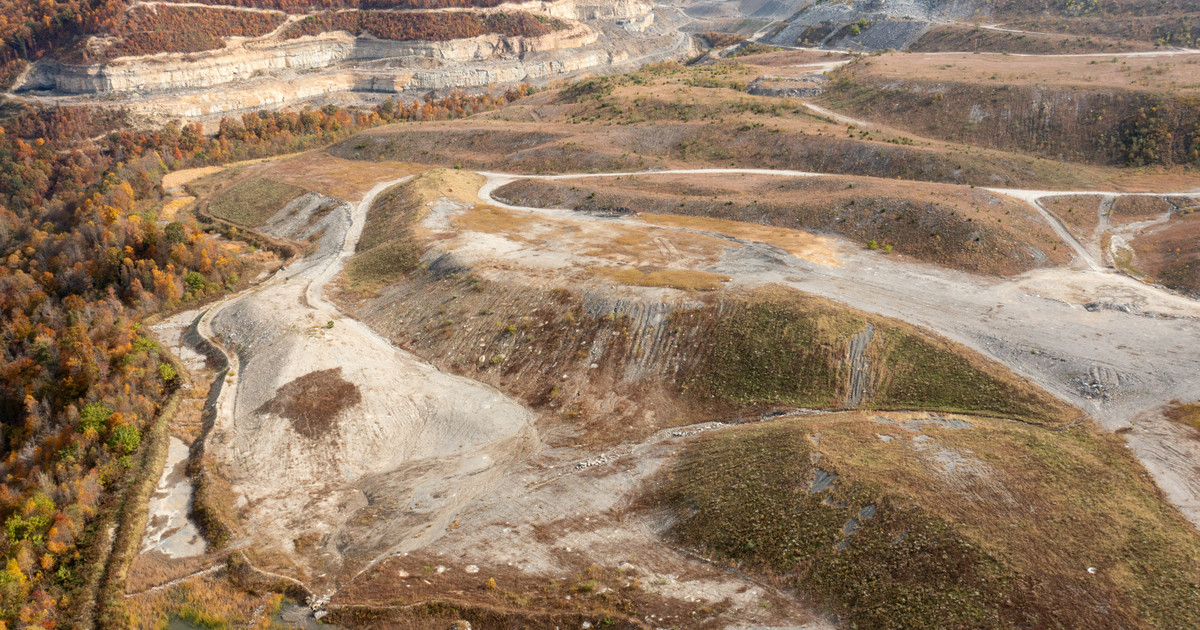West Virginia’s fund to clean up abandoned coal mines is in such dire shape that it threatens to stick taxpayers with hundreds of millions — perhaps even billions — of dollars in cleanup costs. And yet, little is being done to turn things around.
The bankruptcy of just one significant mining company could wipe out the fund, according to the state’s top regulatory official. And auditors for the Republican-controlled Legislature said at least five major companies were “at risk” of dumping cleanup costs on the state.
At $15 million, the state’s fund for restoring land is at its lowest level in more than 20 years. The program’s latest published actuarial report in 2022 warned that a related water cleanup trust fund will lose half its balance over the next 10 years.
These are costs the coal industry was supposed to cover. Unreclaimed mine sites can not only damage the environment but also endanger coalfield residents who live nearby. Coal waste dams sometimes leak or break, flooding downstream communities. Cliffs of rock and debris left behind after mining can collapse. Runoff that isn’t contained or treated often poisons fish or water supplies.



Yep. It’s a great racket. Open a mine with huge tax breaks, then don’t worry about safety over output and pay fines much lower than any profits you might have made. When the mine is no longer profitable, walk away and leave it up to the taxpayers to figure out what to do about it.
That’s that “Business Innovation” Republicans were talking about back in 2012
Literally that, and it’s sickening. FYI: I live here and deal with this in my day job (well, the technical/administrative side of it, anyway).
We have various reclamation funds that are supposed to cover these scenarios; there’s several funds covering different types/scopes of reclamation. They’re all largely funded by reclamation bonds (or rather, the forfeiture of those bonds when operators abandon a site) as well as various fees on coal tonnage and penalties (permitting violations, etc). The system wasn’t designed for abandonment and bond forfeiture to be a standard business practice, and that’s what’s killing us (literally, environmentally, and financially).
Luckily, for the most part, the taxpayers aren’t on the hook. At least, not locally. What tends to happen is sites eventually get so bad that they have to have remediation funded by the EPA’s Superfund program (see: Minden, WV as the latest example). So yes, we all have to pay for it, but since it’s federally funded at that point, the locals don’t see the cleanup expenses coming out of their pockets.
It really is a racket, and everything in our state government seems to encourage the practice - we’ve had ample opportunity (years to decades) to increase bonding amounts, close loopholes, etc and we’ve chosen not to.
Considering how most of our legislature and our frigging governor have close ties to the coal industry, I’m completely stumped as to why we’ve done so little. /s
Oh great, so all of us in the other 49 states who didn’t even have an opportunity to vote against your grifting politicians get to foot the bill.
Same as Texan and Albertan oil wells.
Gov’ts just don’t give a shit about people.
But jobs! Jobs! Jobs!